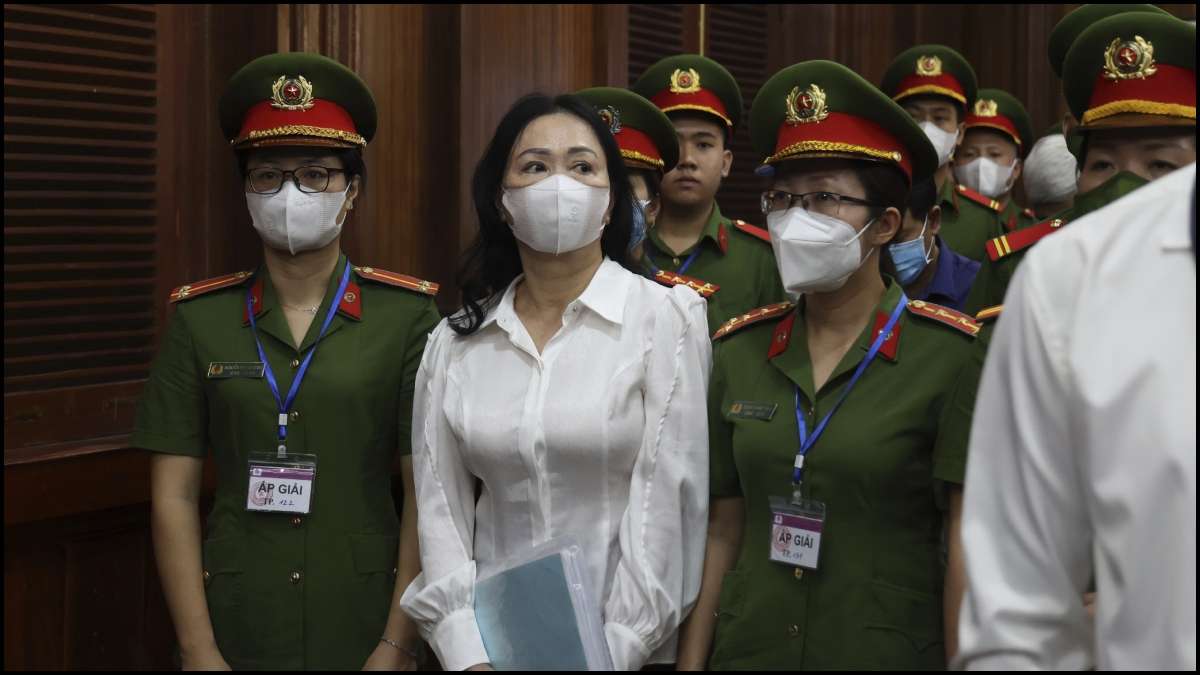
[ad_1]

Hanoi: Real estate tycoon and billionaire Truong My Lan was sentenced to death on Thursday by a court in Vietnam’s Ho Chi Minh city in the country’s largest financial fraud case, according to local reports. Lan, 67, was accused of fraud amounting to $12.5 billion – nearly 3 per cent of the country’s GDP in 2022 – as the chair of the real estate company Van Thinh Phat Holdings Group.
Lan reportedly controlled the Saigon Joint Stock Commercial Bank illegally between 2012 to 2022 to siphon off funds amounting to 304 trillion dong ($12.5 billion) through thousands of ghost companies and by paying bribes to government officials. Lan’s arrest in October 2022 was among the most high-profile in an ongoing anti-corruption drive in Vietnam that has intensified since 2022.
From early 2018 through October 2022, when the state bailed out SCB after a run on its deposits, Lan appropriated large sums by arranging unlawful loans to shell companies, investigators said. One of her lawyers said Lan would appeal the verdict before it was issued.
The trial, which began on March 5 and ended earlier than planned, came as part of a campaign against graft that the leader of the ruling Communist Party, Nguyen Phu Trong, has pledged for years to stamp out, although with few tangible results. The crackdown, dubbed “blazing furnace”, has seen hundreds of senior state officials and high-profile business executives prosecuted or forced to step down.
The campaign has touched the highest echelons of Vietnamese politics. Former President Vo Van Thuong resigned in March after being implicated in the campaign. At one point in 2022, Vietnamese stocks suffered a $40 billion wipeout, following a series of big corporate arrests, rattling investor confidence at a delicate moment for the fast-growing economy.
Who is Truong My Lan?
Truong My Lan comes from a Sino-Vietnamese family in Ho Chi Minh City, formerly Saigon, BBC reported. It has long been the commercial engine of the Vietnamese economy, dating well back to its days as the anti-communist capital of South Vietnam, with a large, ethnic Chinese community.
Lan started as a market stall vendor, selling cosmetics with her mother, but began buying land and property after the Communist Party introduced a period of economic reform, known as Doi Moi, in 1986. Her wealth grew substantially since then and she owned a large number of hotels and restaurants by the 1990s.
By 2011, Truong My Lan was a well-known business figure in Ho Chi Minh City, and she was allowed to arrange the merger of three smaller, cash-strapped banks into a larger entity – the Saigon Commercial Bank. Truong actually controlled 90 per cent of the bank shares through proxies, despite the law barring any individual from holding more than 5 per cent.
Analysts said the scale of the scam raised questions about whether other banks or businesses had similarly erred, dampening Vietnam’s economic outlook and making foreign investors jittery at a time when Vietnam has been trying to position itself as the ideal home for businesses trying to pivot their supply chains away from China.
The real estate sector in Vietnam has been hit particularly hard: An estimated 1,300 property firms withdrew from the market in 2023, developers have been offering discounts and gold as gifts to attract buyers, and despite rent for shophouses falling by a third in Ho Chi Minh City, many in the city centre are still empty, according to state media.
(with inputs from agencies)
[ad_2]
Source link